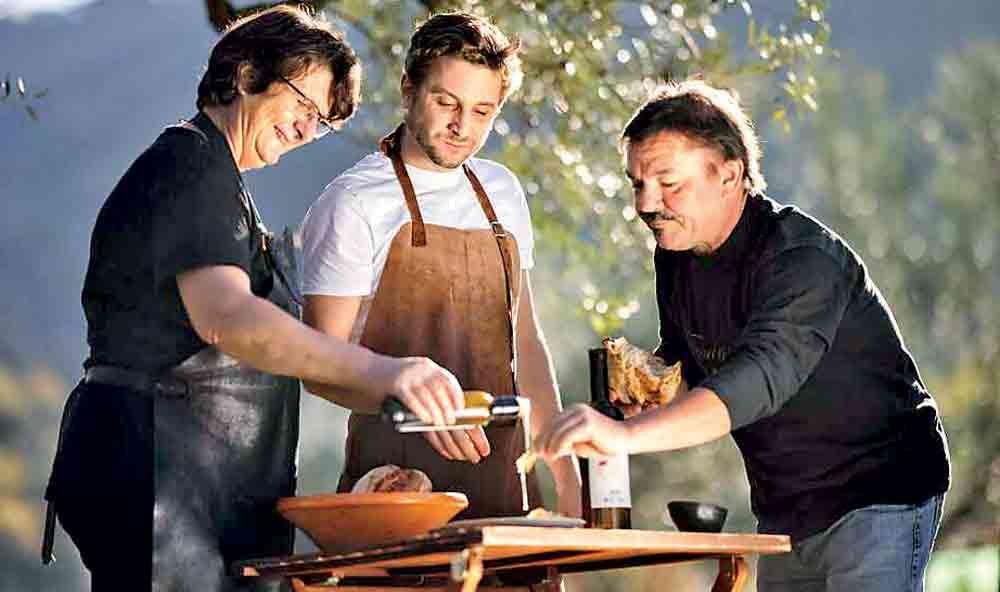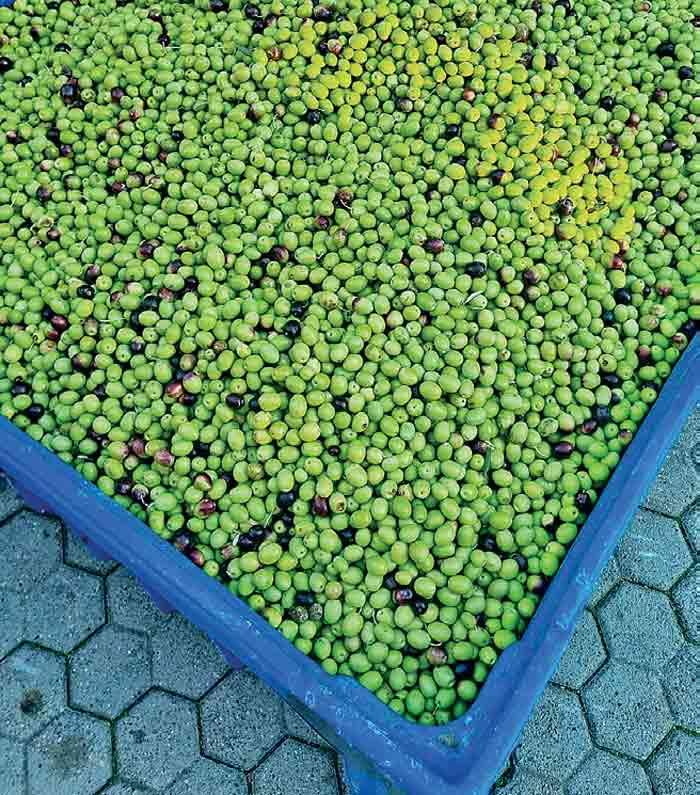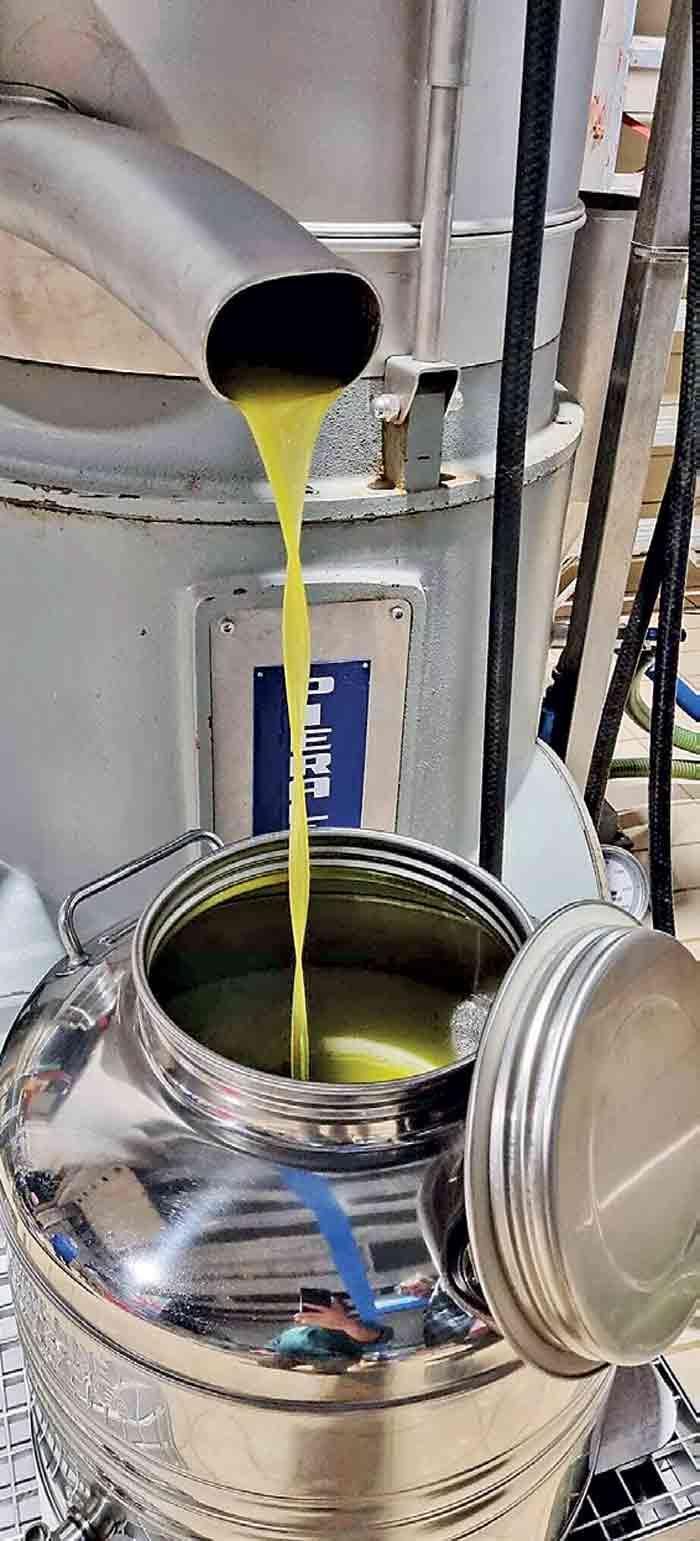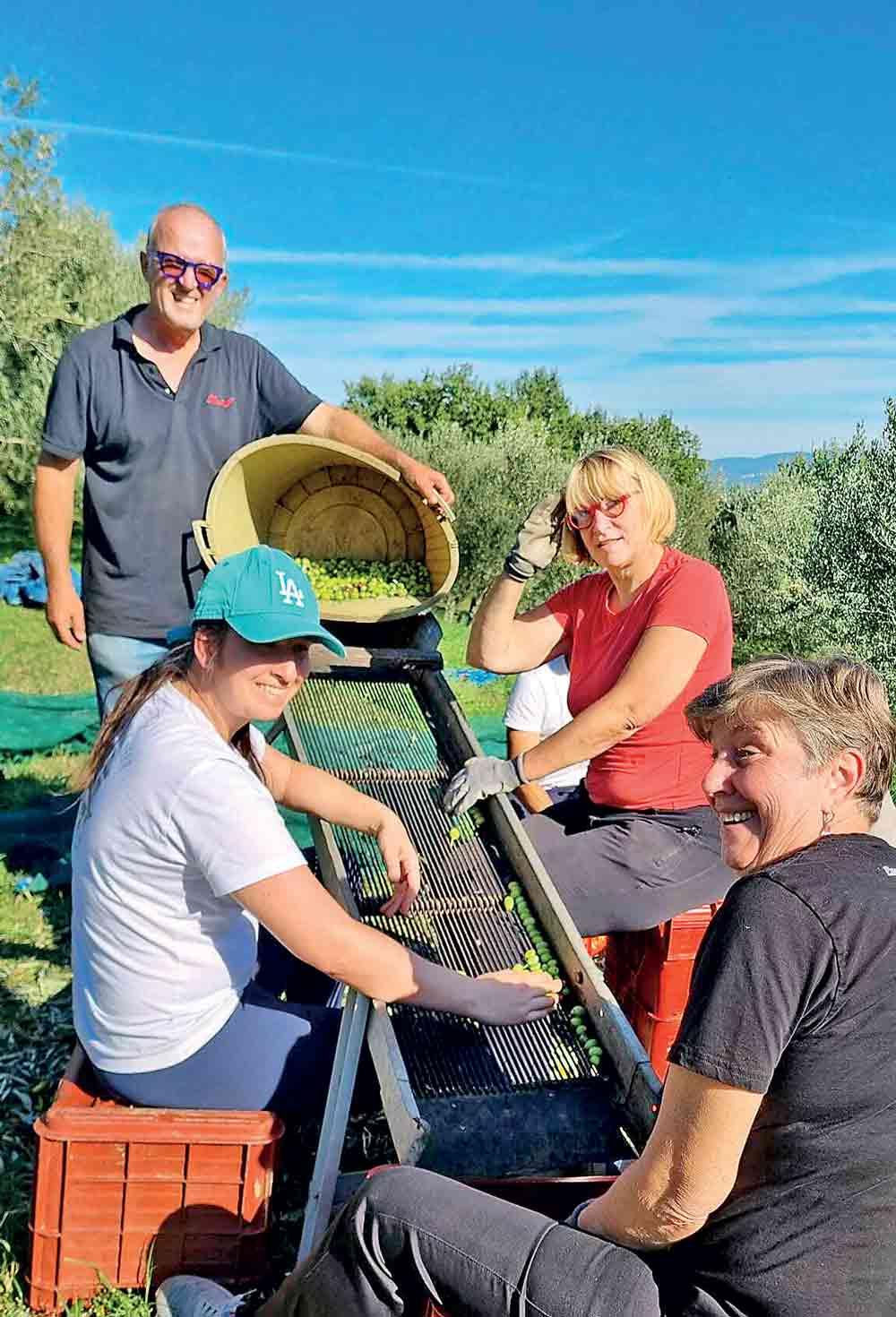 It’s early September, the sun is still warm, and the afternoon carries the heady scent of thyme, oregano, rosemary and other fresh Mediterranean herbs mingling together with sweet lavender. There’s a slight crisp chill in the air, signalling the slow turning of the seasons. I’m at Domacija Butul, a sprawling farmstay in the heart of the Istrian region of Slovenia.
It’s early September, the sun is still warm, and the afternoon carries the heady scent of thyme, oregano, rosemary and other fresh Mediterranean herbs mingling together with sweet lavender. There’s a slight crisp chill in the air, signalling the slow turning of the seasons. I’m at Domacija Butul, a sprawling farmstay in the heart of the Istrian region of Slovenia.
A few years ago, I visited this family-run farmstay nestled in the charming village of Manžan, just outside the coastal medieval city of Koper. Since it was still the tail end of the summer, the trees in their orchard were drooping under the weight of figs, apples and other ripe fruit that dangled from the branches. Tatjana, Mitja and their son Črt care deeply about the land; they believe in bringing people closer to food production and processing by hosting farm tours and culinary workshops that highlight fresh, local produce and Istrian cuisine.
Each season brings a different activity. Plucking wild asparagus in the spring, harvesting and making wine in the summer, preserving the fresh summer produce or even foraging for truffles in the autumn. However, October and November bring about one of the most anticipated, revered and oldest traditions in the region, harvesting olives to produce olive oil.
Olive oil is the lifeblood of the Mediterranean Diet, which Istrian cuisine falls under and here, producing olive oil has become a way of life. This tradition is passed down from generation to generation and is even recognised by UNESCO as an intangible cultural heritage. The harvest season is deeply rooted, pun intended, in the land and community, and joining their olive harvests would certainly be a deliciously memorable experience.

Slovenia’s Istrian Region & the Domačija Butul Farmstead
Slovenia sits between the Alps and the Adriatic Sea. This diminutive country has much to offer, and places like Ljubljana, Bled and Piran have become increasingly popular. In the summer months, the coastal cities can get painfully crowded, as large cruise ships dock at the seaside towns with their Venetian-Gothic architectural charms. However, if you move away from the coast and towards the hinterland of the Istrian peninsula, you will experience a completely different Slovenia.
Here, amidst rolling hills that are kissed by the salty sea spray, is where you will find the Domačija Butul Farmstead. Perched on a cliff 100m above sea level, their 14-acre property stretches out.
With thick olive groves, meandering meadows, winding vineyards, bountiful orchards and an overflowing herb garden, it is a pastoral paradise. The region and its cuisine have been heavily influenced by its larger neighbours, Italy, Austria and other Western Balkan countries, yet, the Butuls have managed to retain a uniquely Slovenian charm.
As you snake your way through their property during a farm tour, you can expect Mitja to hand you different fruits to try and herbs to sniff. But the real magic is when you return from the tour. You will be treated to a table laden with cold cuts, cheeses, jams, preserves, honey and other delicacies all carefully prepared by Tatjana, using only seasonal ingredients sourced from their farm. If you’re lucky, Črt, a professional chef, may have made a wonderful meal that highlights the ingredients and is paired with their award-winning natural wine. Of course, the pièce de résistance will be the different olive oils they have for you to try. Dunk some warm, crusty sourdough bread into this liquid gold and enjoy!
Olive Harvesting: An Autumnal Ritual
‘Tradition is our mission’ is the Butul family motto, and while this ethos trickles into every aspect of their farmstead, it is most apparent in their olive oil production process. Tatjana Butul, the matriarch and the one largely responsible for all their tasty jams, preserves and pickles, has been associated with olive growing since childhood.

“The knowledge is hereditary,” she says. “I received it from my father, who learnt it from his mother.” Tatjana keeps this tradition alive as her son now takes the helm in growing their offerings. Participating in the harvest itself is a centuries-old regional ritual. Before fridges or machines were invented, every autumn, families and friends would gather together to harvest these fruits. It was done to help reduce the labour for each family and also ensure that everyone’s larders would be full for the winter, keeping them satiated until the next harvest season. Today, continuing this process of their ancestors and tending the trees, some of which are over a hundred years old, is a way to stay connected to the land, their history and their community.
The Process
The Butul olive grove has eight varieties of trees, contributing to different complexities, flavours and aromas of the finished oil. The most abundant variant is the Istrian Belica, a sturdy endemic variety that grows in all weather conditions, regardless of strong winter winds or long dry summers.
Just like in the past, the harvest is done entirely by hand, to ensure that only the best fruits are plucked and that the trees aren’t damaged. Large nets are set under the trees and after that, the pickers get to work. Using ladders and rakes, to pull down the tall branches, they slowly pick the olives one by one.
The next step is pressing the olives. Within four hours after harvesting, their bounty is rushed to a nearby communal processing plant to be pressed. The oil obtained is Extra Virgin Olive Oil (EVOO), it’s fresh, flavourful, aromatic and has a grassy golden tint to it. Unlike the olive you buy in bulk from the supermarket, which usually is combined with other oils, this small batch of EVOO the Butuls produce is clean and has no added preservatives. Their olives are pressed at a low temperature (less than 280C) ensuring that oil retains all the natural antioxidants of the fruits, and this really affects the flavour of the end result, probably why they won the highly coveted Golden Olive Twig award.

Once the oil has been pressed, the Butuls take vats of this liquid gold back and transform some ‘simple’ olive oil into different infusions and other delectable treats. From truffle infused olive oil to jarred artichokes preserved in oil and herbs, their pantry is a food lovers paradise. However, the process does not stop there. After the fruits have been harvested, they then collect the leaves which have 30 - 50% more antioxidants than the fruit itself! They dry the leaves and combine it with strong, Ceylon Cinnamon to make a warming herbal tea.
A Labour of Love
In today’s day and age, it’s easy to feel disconnected; from the people around us, the food we eat and the land itself. However, traditions like this can make you pause and reconnect. Harvesting olives, or anything really, can be quite labour intensive. Pickers must arrive a little after dawn and work well into the evening collecting the fruits, it’s a race against the clock as everything must be done before the season ends. It takes a toll on your body, yet it doesn’t feel so bad when you’re surrounded by friends and loved ones. Music is played, jokes are made, and every meal is enjoyed together amidst the grove. The whole process brings the community together, and rather than competing with one another the olive growers work collectively to learn from each other to keep this longstanding tradition alive.
In the last few years, there’s been an uptick in olive oil tourism, especially in Italy. However, if you visit the Butuls or another farmstead similar to theirs in the Slovenian Istrian peninsula, you can have an entirely different and a far more intimate experience. Whether it’s participating in the olive harvest or picking berries in the summer, I urge you to visit their farm and see how much love and thought goes into everything they do. Even though the harvesting process is hard work, at its core, producing olive oil is about home and the community, and I assure you, after a visit here, you will leave with your heart and belly full.
If you’re interested in participating in a harvest, or you just want to go on a farm tour, reach out to the Domačija Butul Farm at domacija.butul@gmail.com












